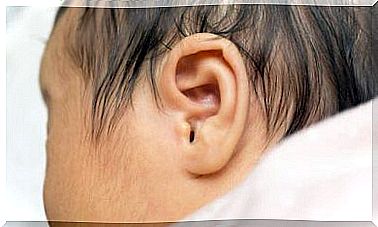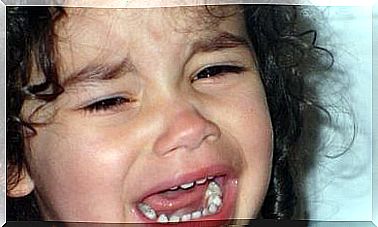3 Things Parents Shouldn’t Do In Front Of Their Children

Any person’s life changes with the arrival of a child. This generally reflects more on your daily routine but also affects your way of communicating. Most children tend to imitate their parents’ gestures and words. This is why it is advisable to pay attention to your conduct and the topics discussed in front of your children.
It is not necessary to be explicit in order to convey values. In this case it is not necessary that you address the child directly. By simply being present you are already affecting your children more than you think. They will learn everything from your actions. This is why there are things that should be avoided in front of the little ones.
Why do parents not have to deal with certain topics?
When they are young, children interpret the world from a very particular point of view. They understand and absorb a lot more than you think and they do it literally.
That is to say that even if they understand a general concept, they do not understand the nuances, expressions or metaphors used. For example, if you say that the neighbor has crow’s feet, the little one will understand that the neighbor has legs like those of the bird.
They don’t even understand irony, sarcasm and double entenders. They do not even understand the words that are said out of anger and those that are really thought. All the nuances that the little ones cannot understand, they imagine them in their mind.
Babies understand non-verbal language better: body language and emotionality. Consequently, anything that is not understood is replaced with an emotional charge.
This can cause various problems. We are not just referring to the fact that your child may report certain gossip, for example. But to more worrying situations in which the little ones can feel confused or torn, without understanding the real cause.

An illustrative example
Imagine such a situation: you have discussed with your parents and you are telling your partner about it, to let off steam. The little one who is present during the exchange perceives the anger against his grandparents, whom he loves very much. How will he feel? His perception is that anger comes when someone does something wrong. Are grandparents bad? How will I have to treat them now? What’s going to happen, what can I do?
Similarly, it can be confusing with the little one in other ways. Relationships of kinship, friendship, school, or “adult thoughts” that you pass on unconsciously can confuse children, who cannot handle these emotions. You have to be careful what you do in front of the little ones. There are issues that parents should not talk about in front of them but without however excluding dialogue from the family.
Some issues that parents should not deal with in front of their children
Here is the list of issues that parents should never discuss in front of their children.
- Talking badly about other people. This also includes gossip in general. Children, especially the youngest ones, are unable to understand this information, nor their role in it. As we have already explained, they may feel confused, torn and guilty.
- Thoughts of an “adult”. Money, time, expense… Don’t let your worries weigh on your children. As they grow, you can explain the situations to them, always with suitable ways and examples.
- Talk about your children as if they weren’t there. Labeling them, commenting on their physicality, or their intellect, is to be avoided. Negative comments can create complexes.

Also, you need to pay attention to the tone in which you speak and your attitude. For example: the cries, even if not directed at the baby, will only block the baby and confuse him. Lies are also to be avoided, otherwise they will learn to lie in order not to tell uncomfortable truths.
How to check what is said?
Paying attention to what is said in front of children does not mean cutting off all kinds of communication in their presence. The only thing to do is think before you speak and try to put yourself in their shoes.
A good way to pay attention to what you say is to speak as if you were to be registered. Think carefully about the words and images you will inspire with them, the attitude with which they will be associated.
Also, consider whether the conversation can confuse the child in any way. That is, try to understand how everything can reflect on him.
Finally, it is advisable to use clear and direct language in his presence. During childhood, children do not understand metaphors or puns. If you avoid the use of these types of expressions, you will eliminate most of the confusing feelings that can arise in the small.
Since you won’t always be able to control yourself, make sure your little one always understands the context of situations. So that he doesn’t interpret your anger or concern as his own fault. Clarifying her doubts is essential for proper growth and will strengthen your bond.









